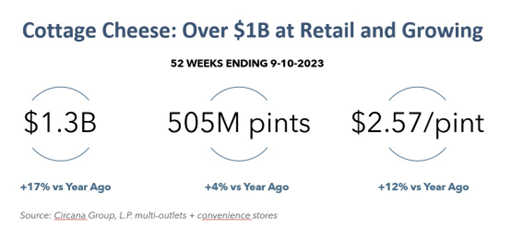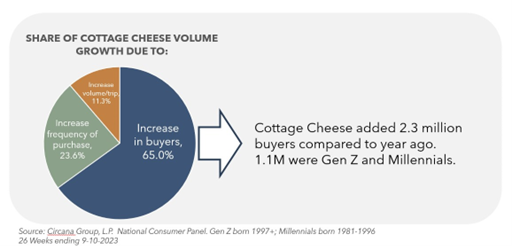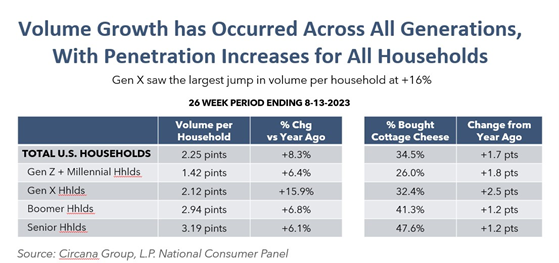USDA today announced critical, long-awaited financial assistance for dairy farmers affected by natural disasters. The Milk Loss Assistance program (MLP), administered by the Farm Service Agency (FSA), will compensate eligible dairy farms for milk dumped due to qualifying disaster events in 2020, 2021 and 2022, including droughts, wildfires, hurricanes, floods, derechos, excessive heat, winter storms and smoke exposure.
Dairy farmers can sign up for MLP beginning today and running through Oct. 16. Affected producers are encouraged to sign up as soon as possible. See below for eligibility and application information, as well as details about how payments will be calculated.
How did we get here?
Since Congress approved funding in 2021, NMPF has held numerous meetings with FSA staff highlighting dairy farmers’ disaster needs. Most recently, NMPF helped provide USDA with cost estimates for the program to help speed up its implementation and met with Under Secretary for Farm Production and Conservation Robert Bonnie to urge action on the issue. NMPF also sent a public letter to Agriculture Secretary Tom Vilsack urging that funds be released quickly and engaged members of Congress to ensure accountability, among other initiatives. These efforts came on top of NMPF advocacy for the funds to be included in legislation, a wide-ranging effort that involved grassroots activism and numerous meetings with dairy champions in Congress.
Am I eligible for support?
MLP will compensate dairy operations for milk dumped or removed without compensation due to qualifying disaster events, including droughts, wildfires, hurricanes, floods, derechos, excessive heat, winter storms, freeze (including a polar vortex), and smoke exposure that occurred in the 2020, 2021 and 2022 calendar years. Tornadoes are considered a qualifying disaster event for calendar year 2022 only.
The milk loss claim period is each calendar month that milk was dumped or removed from the commercial market. Each MLP application covers the loss in a single calendar month. Milk loss that occurs in more than one calendar month due to the same qualifying weather event requires a separate application for each month.
The days that are eligible for assistance begin on the date the milk was removed or dumped and for concurrent days milk was removed or dumped. Once the dairy operation restarts milk marketing, the dairy operation is ineligible for assistance unless after restarting commercial milk marketing, additional milk is dumped due to the same qualifying disaster event. The duration of yearly claims is limited to 30 days per year for 2020, 2021 and 2022.
How will payments be calculated?
The calculation for determining MLP payment is: (Base period per cow average daily milk production x the number of milking cows in a claim period x the number of days milk was removed or dumped in a claim period) ÷ 100) x pay price per hundredweight.
For MLP payment calculations, the milk loss base period is the first full month of production before the dumping or removal occurred.
The payment percentage will be 75% for most producers, and 90% for underserved farmers, including beginning, veteran and socially disadvantaged farmers.
Adjusted Gross Income (AGI) limitations do not apply to MLP, however the payment limitation for MLP is determined by the person’s or legal entity’s average adjusted gross farm income. Specifically, a person or legal entity, other than a joint venture or general partnership, cannot receive, directly or indirectly, more than $125,000 in payments under MLP if their average adjusted gross farm income is less than 75% of their average AGI or more than $250,000 if their adjusted gross farm income is at least 75% of their average AGI.
How can I apply for assistance?
To apply for MLP, producers must submit:
- FSA-376, Milk Loss Program Application
- Milk marketing statement from the:
- Month prior to the month milk was removed or dumped.
- Affected month.
- Detailed written statement of milk removal circumstances, including the weather event type and geographic scope, what transportation limitations occurred and any information on what was done with the removed milk.
If not previously filed, applicants must also submit a few other FSA forms within 60 days of the MLP application deadline. However, most producers will have these required forms already on file. However, those who are uncertain or want to confirm the status of their forms can contact their local FSA county office.
What about co-op losses?
Although MLP support is targeted for producers, cooperatives that spread losses across their membership should contact Steve Peterson at FSA (steve.peterson2@usda.gov) to inquire about eligibility for support to distribute to producers whose milk income was reduced due to milk dumping.
What’s next?
NMPF is grateful for this critical USDA support but recognizes that for affected producers, its delay has caused significant economic hardship. NMPF will continue to work with Congress and USDA to better prepare for and respond to natural disasters impacting the dairy community, including 2023 weather events.
Check out FSA’s announcement for more information and contact us at info@nmpf.org with any questions or comments.








